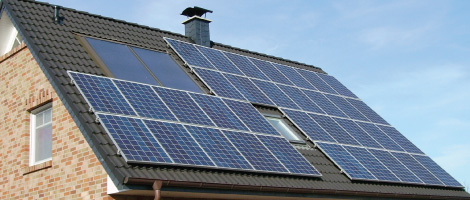
NAIROBI, KENYA: A new rule that requires private developers and homeowners to install solar water heating system in their developments is causing confusion among industry players, as it emerges that some are either ignoring it or are inexcusably not aware, writes MKALA MWAGHESHA
Many private developers and homeowners are still not sure how to effect new Energy Regulation Commission (ERC) rule that requires them to install solar water heating system in their developments.
In January, ERC put up a notice reminding developers and homeowners about the rules and regulations that need to be followed. In the notice, ERC notified the public of the coming into force of three regulations — the Solar Heating Regulations, the Energy Management Regulations and the Solar Photovoltaic Regulations — all enacted in 2012.
“People are still jittery about the regulations as most are waiting for the ERC to act,” says Mark Kituke, Technical Manager at Kenital Solar Smart Energy Solutions. “There is a feeling that most people are still not sure of what is required. Only time will tell how serious ERC is.”
The Energy (Solar Water Heating) Regulations, are explicit that premises with hot water requirements of a capacity exceeding 100 litres per day shall install and use solar water heating systems.
REQUIREMENTS
It also gives existing premises with hot water requirements exceeding 100 litres per day a five-year window period — up to April 2017 — to install and use solar water heating systems.
It also directs homeowners, architects and engineers to incorporate solar water heating systems in all new premises, designs and extensions or alterations to existing premises. Some architects are said to assume the importance of the system in designing houses.
According to Chloride Exide Country Manager for Renewable Energy and Water Heating, Joseph Muthoka, some architects are assuming ERC directives in their architectural designs.
“We are having difficulties, especially with architects. Many come up with house designs that have not incorporated the solar energy system. During the system’s installation, many owners are forced to re-plumb or re-design some parts of the house,” Muthoka said in an earlier interview.
The claims were supported by Robert Omwando, the sales manager at Go Solar, who blamed it all on ignorance.
“Some architects and electrical engineers are not aware of the directive. It is proving to be costly,” he said.
Peter Gitau of Peter’s Homes and Peter’s Plots, says that some architects are just “lazy in embracing new ideas”.
“Unfortunately, our architects are dull and boring. They are not daring and imaginative,” he says. “I think failure to incorporate solar water heating systems in some new residential buildings is because building owners and architects are only recycling the dull designs seen around us.”
Stay informed. Subscribe to our newsletter
However, Musembi Mumo, an architect, refutes the claims, saying architects are not even concerned with installation of solar water heating systems on houses.
“Solar systems installations, just like electrical system, are handled by service engineers, in this case the mechanical engineers. We come up with house plans, but other consultants handle everything else,” says Mumo. “The problem is that most developers like short-cuts and to avoid paying more consultants, they let only a few consultants handle everything.”
According to Mumo, even solar system companies come up with their own plans, sometimes disrupting the whole process. “We (architects) are not misleading clients,” Mumo explains.
Omwando, on the other hand, is blaming ERC, saying the commission has not advertised the directives well and widely, with the effects of the policies only felt in towns. Sam Manjau of Abec Real Estate concurs. He says there is a disconnect between policy makers and those to be affected by regulations.
“The ERC should have sent the directives to all the relevant associations that deal with the construction industry. If some architects are not aware of such an important item, then there is a problem,” says Manjau.
“Sadly the ERC is not doing as much as it can in marketing the solar energy option to Kenyans,” says Gitau of Peter’s Homes and Peter’s Plots. “ERC needs to come up with incentives for Kenyans to take up solar energy.”
He says ERC can make life easier by offering free solar panels to homes or zone areas where power source is strictly solar. “Why not mount an aggressive marketing campaign to get people install solar panels in every building in the country?” he asks.
REGULATIONS
Mumo concurs, saying it is up to the government (both national and county) to enforce the regulations.
The regulations also seek to have all persons undertaking any solar water heating system installation work to be licensed by ERC as a system technician or a contractor. “The technicians are to be licensed but ERC has technically zero capacity to inspect technicians and all new and existing premises,” says Kituke.
But it is not all gloom. “The regulations are an advantage to Kenyans since a modern building, whether for commercial use or personal use, should have more than one source of energy,” says Muthoka, adding that escalating electricity tariffs and an inconsistent electricity supply calls for an alternative source of energy.
“With green energy, electricity consumption. It is a good move for the country and once the initial cost of setting up the system is borne, things will work out,” says Manjau, adding that in the short-term, the cost of houses will go up.
Sales have also gone up for some companies, with Go Solar admitting to reaping from the regulations. “Our sales of solar water heating systems have gone up by nearly 50 per cent since January as everyone tries to beat the deadline,” says Omwando. “We are getting orders from engineers, developers and even individuals. Apart from beating the deadline, most people are becoming aware of the benefits of green energy.”
Gitau says it would take some time for the impact of the regulations to be felt. “Although in Kenya the immediate reaction to any new government directive is to “rebel” and find ways to defeat it, many clear-thinking developers will appreciate the economic and environmental benefits of solar energy,” he said.
“Of course, there will be costs in purchasing, installing and maintaining these solar panels but the long-term benefits far outweigh the costs.”
 The Standard Group Plc is a
multi-media organization with investments in media platforms spanning newspaper
print operations, television, radio broadcasting, digital and online services. The
Standard Group is recognized as a leading multi-media house in Kenya with a key
influence in matters of national and international interest.
The Standard Group Plc is a
multi-media organization with investments in media platforms spanning newspaper
print operations, television, radio broadcasting, digital and online services. The
Standard Group is recognized as a leading multi-media house in Kenya with a key
influence in matters of national and international interest.
 The Standard Group Plc is a
multi-media organization with investments in media platforms spanning newspaper
print operations, television, radio broadcasting, digital and online services. The
Standard Group is recognized as a leading multi-media house in Kenya with a key
influence in matters of national and international interest.
The Standard Group Plc is a
multi-media organization with investments in media platforms spanning newspaper
print operations, television, radio broadcasting, digital and online services. The
Standard Group is recognized as a leading multi-media house in Kenya with a key
influence in matters of national and international interest.








